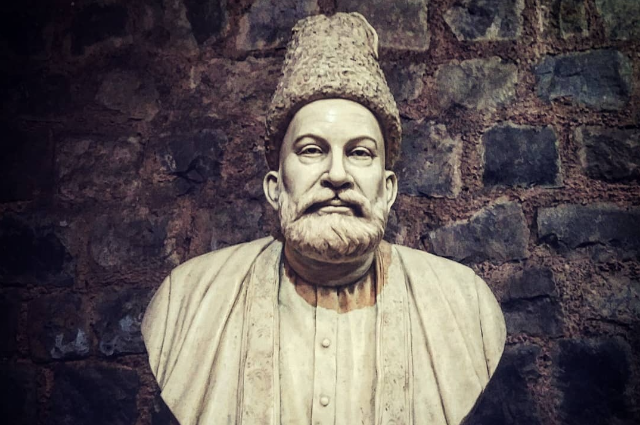The Urdu Department at the University of Delhi has a rich and storied history, dating back to the early 20th century. Over the years, the department has played a significant role in shaping the literary landscape of India, producing some of the most renowned Urdu writers, poets, and scholars of our time. From the classical poetry of Mirza Ghalib to the revolutionary verse of Faiz Ahmed Faiz, the Urdu Department has been at the forefront of promoting and preserving the literary heritage of Urdu.
The Early Years
The Urdu Department was established in 1922, with the aim of promoting the study and teaching of Urdu language and literature. In its early years, the department was headed by some of the most distinguished scholars of Urdu, including Professor Abdul Haq and Professor Rashid Ahmad Siddiqui. These scholars laid the foundation for the department's future growth and development, introducing courses in Urdu language and literature that would become the hallmark of the department's academic programs.
The Golden Age of Urdu
The 1950s and 1960s are often referred to as the "Golden Age" of Urdu literature. During this period, the Urdu Department at Delhi University was at the center of a literary movement that saw the emergence of some of the most iconic Urdu writers and poets of our time. Writers like Faiz Ahmed Faiz, Ahmad Faraz, and Sahir Ludhianvi were all associated with the department, either as students or as faculty members.
Faiz Ahmed Faiz, in particular, is remembered for his revolutionary poetry, which inspired a generation of young writers and intellectuals. His poem "Hum Dekhenge" ("We Shall See") became an anthem for the anti-establishment movement of the 1960s and 1970s, and his influence can still be felt in the literary and cultural landscape of India today.
The Contribution of the Urdu Department
The Urdu Department at Delhi University has made significant contributions to the literary heritage of Urdu. The department has produced some of the most renowned Urdu writers, poets, and scholars of our time, and has played a major role in shaping the literary landscape of India.
One of the department's most notable contributions has been in the field of Urdu poetry. The department has produced some of the most iconic Urdu poets of our time, including Faiz Ahmed Faiz, Ahmad Faraz, and Sahir Ludhianvi. These poets have not only enriched the literary heritage of Urdu but have also inspired a generation of young writers and intellectuals.
The department has also made significant contributions to the field of Urdu prose. Writers like Ismat Chughtai and Qurratulain Hyder, who were both associated with the department, are remembered for their pioneering work in the field of Urdu fiction. Their novels and short stories have been widely acclaimed and have helped to shape the literary landscape of India.
Challenges and Opportunities
Despite its rich history and contributions to literary heritage, the Urdu Department at Delhi University faces several challenges today. The department is struggling to attract students, and the number of students enrolled in Urdu courses has been declining steadily over the years.
However, the department is also facing new opportunities. The increasing interest in Urdu language and literature among young people, particularly in the wake of the COVID-19 pandemic, has created new opportunities for the department to promote and preserve the literary heritage of Urdu.
The department is also exploring new ways to engage with the wider community, including through social media and online platforms. The department's social media accounts have become a hub for literary and cultural discussions, and the department is using these platforms to promote Urdu language and literature among a wider audience.
Conclusion
The Urdu Department at the University of Delhi has a rich and storied history, dating back to the early 20th century. From the classical poetry of Mirza Ghalib to the revolutionary verse of Faiz Ahmed Faiz, the department has played a significant role in shaping the literary landscape of India.
Despite the challenges it faces today, the department remains committed to promoting and preserving the literary heritage of Urdu. The department's contributions to the field of Urdu poetry and prose have been significant, and its impact can still be felt in the literary and cultural landscape of India today.
As the department looks to the future, it is clear that it will continue to play a major role in shaping the literary landscape of India. The department's commitment to promoting and preserving the literary heritage of Urdu is unwavering, and its impact will be felt for generations to come.

